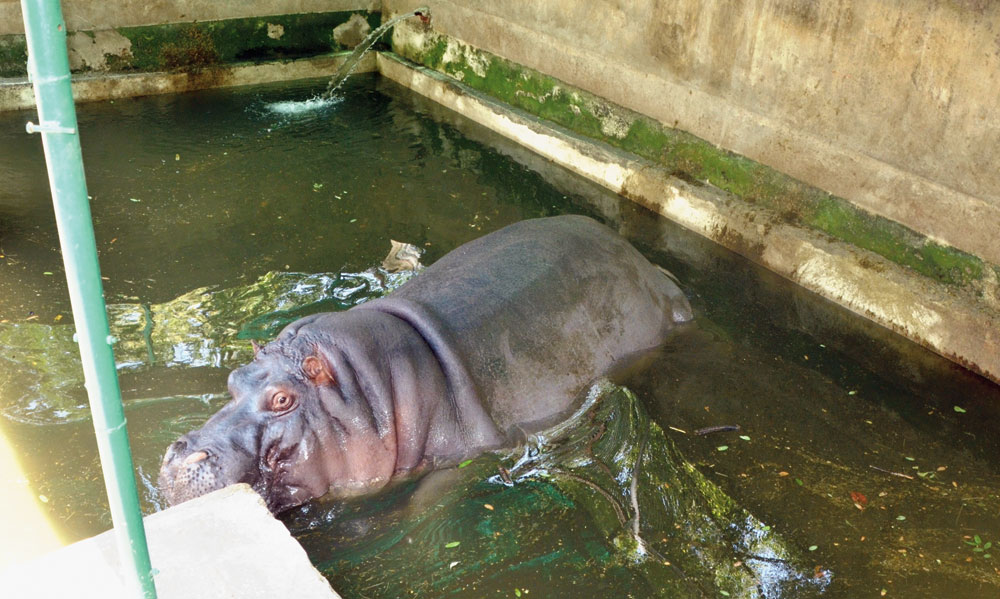On dietary changes, the animal expert said there were two changes, in timing and in actual components.
Animals were given food early, before 9am, to help in proper digestion and rest, Chakravarty said. “The tigress and lioness eat 10kg and 8kg of goat meat a day, respectively, and the leopards 5kg each of chicken,” he said. He added carnivores were given normal quantities of goat meat and chicken as of now, but once heat increased in intensity, the amount of meat would reduce and B-complex supplements added. “Monkeys are getting cucumbers and you should see them enjoying it,” Chakravarty smiled. To prevent heat stroke and dehydration, water mixed with electrolytes and glucose was being fed to them.
Crucially, monitoring is the key, Chakravarty said. “Animals may fall ill in the heat, may feel lethargic or restless. So regular monitoring is a must this season,” he said.
Set up in 1989 by Bokaro Steel, the zoo remains open on all working days for visitors between 9am and 5pm except Mondays. The Central Zoo Authority recognises it as a small category zoo.
With the mercury hitting the 40-degree mark, Jawaharlal Nehru Biological Park in Bokaro has switched on summer care for its 255 animals and birds of 25 different species.
From installing coolers and ceiling fans, recharging water bodies of the biological park spread over 127 acres, to changes in diet and introducing electrolytes and glucose in water, zoo authorities are doing everything they can to make summer bearable for the wild inmates in the steel town of extreme temperatures.
Giving details to this paper, additional general manager (veterinary) of Bokaro Steel, Gautam Chakravarty, who is also the director of the zoo, said, “We have water pools in the display areas of tiger, hippopotamus and bear enclosures. All these animals have an affinity for water. In fact, a hippopotamus spends more than 23 hours out of 24 hours inside water and only comes out to eat. Bears and tigers also love to bathing several times and splashing around so we have recharged their water pools,” said Chakravarty.
He added, “Two ceiling fans each have been installed for big cats (tiger, lion, leopard). Our zoo has a lioness and tigress each, and one male and two female leopards. The tigress also has an air cooler.” Water was also sprinkled inside tiger, leopard and lion enclosures to increase the cooling effect. Chakravarty added they had put up sheds in the hippo and bird enclosures as well.

A hippopotamus inside Jawaharlal Nehru Biological Park in Bokaro last week. (Shabbir Hussain)










